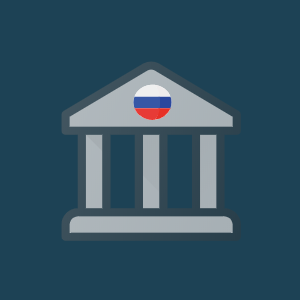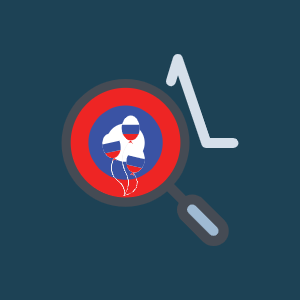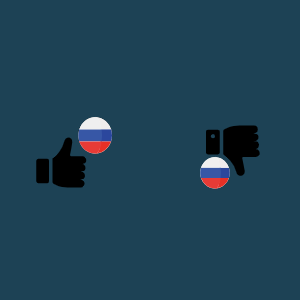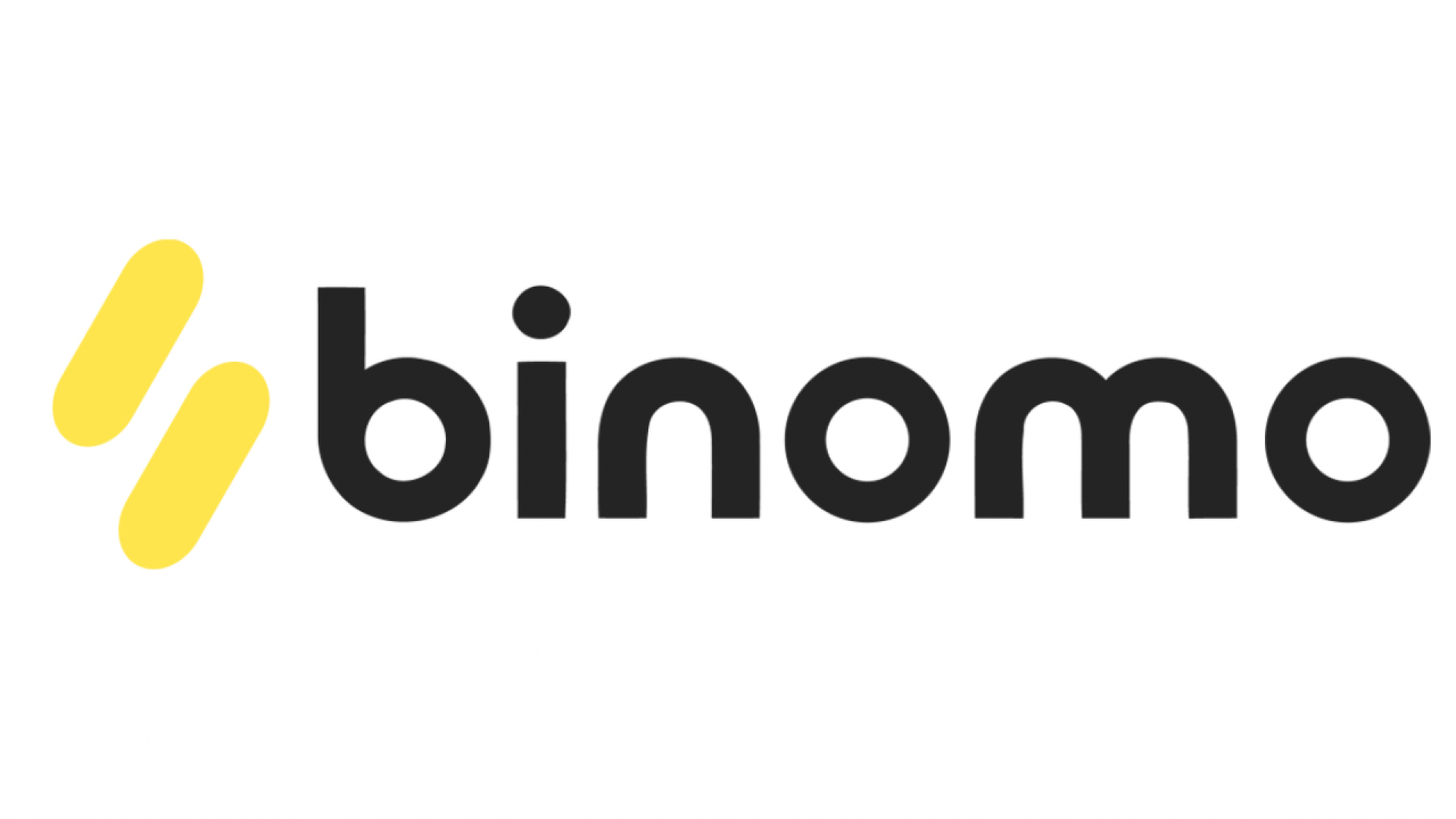Contents
This gigantic Eastern European country has been a global superpower for many decades now and has had an incalculable historic impact on the world in the last century. The country is absolutely massive, being around 2.5 times bigger than the whole of Europe. There are around 146 million inhabitants in this gigantic country, with a GDP of 1.658 trillion, and a not-so-high GDP per capita of $11.289.
The country has gone through massive transformations after the fall of the Soviet Union, making a shift from a socialist/communist structure to capitalism. Nowadays, Russia is one of the biggest economic and political players in the world, and definitely the biggest influence in the region.
In this guide, we will be discussing the specifics of the Russian Forex market, namely how it works, what are the legal specifics surrounding it, what are the trading opportunities available for the people, what are the pros and cons, and more. The guide is aimed at the “average joe” intending to inform themselves and get a general overview before getting started. By the end of reading it, you will be ready to give Forex trading a go and make your first step in your trading journey.
Top Russian Forex brokers
Forex trading is becoming increasingly more popular with each passing year. With such a rapidly increasing demand, more and more brokers are seeing the potential in the Russian market, and are actively joining it. With that, it’s not so easy for a beginner trader to make a well-informed decision on which particular broker to go with, as there are so many things to take into account, which can definitely be hard at times.
Below, you will find our list of who we believe are the very best Forex brokers in Russia, who earned this title based on their reliability, profitability, and uniqueness. Make sure to check all of them out, and you will be well on your way to finding your best Forex broker in Russia.
Forex regulation in Russia
 Russia’s Forex market, in terms of its regulatory environment, is in a reasonably good condition today. However, it definitely wasn’t so in the beginning. The thing is, Forex trading becoming popular in the country was a slow and gradual process. Exact numbers are not known, but some experts state that currently, there are over 200 brokers that are offering their services to the Russians and that there are over 500,000 customers currently trading in Russia.
Russia’s Forex market, in terms of its regulatory environment, is in a reasonably good condition today. However, it definitely wasn’t so in the beginning. The thing is, Forex trading becoming popular in the country was a slow and gradual process. Exact numbers are not known, but some experts state that currently, there are over 200 brokers that are offering their services to the Russians and that there are over 500,000 customers currently trading in Russia.
As the market kept progressing to such numbers, the government kept noticing the need for a more effective and coherent regulatory framework. Above all else, it definitely needed to be toughened up, as surveys were showing, that many customers were the victims of fraud and scams. As such, the government started working towards improving the regulatory environment. Let’s take a quick look at exactly how this happened, who the actual regulators involved are, how they work, and what are some of the specific things that you need to know about them.
Central Bank of Russia
In the past, the authority in charge of trading in Russia was the Federal Financial Markets Service (FFMS), which was founded in 2004, and has held this position up until 2013, at which point it was dismantled, and its responsibilities were transferred to another body, the Central Bank of Russia (CBR).
CBR now oversees the whole financial sector and has quite a large set of responsibilities. The spectrum of responsibilities includes overseeing the market and controlling the behaviors of its participants with the goal of maintaining stability and safety for its participants, as well as creating a supportive and encouraging environment for the market to grow and go towards a positive direction. Additionally, CBR is also in charge of the country’s coinage and is the sole issuer of the Russian Ruble.
Financial Market Relations Regulation Center
Another regulator that is in charge of the management of the country’s financial sector is the Russian Financial Market Relations Regulation Center (FMRRC). FMRRC is a governmental entity that is specifically in charge of controlling things like the quality of the service that the brokers offer. The goal of this regulator is quite similar to that of CBR, such as ensuring the safety of the traders, and that they are getting the service that is their money’s worth. FMRRC does this in a multitude of different ways, such as controlling that the brokers are conducting the business in a fair and ethical manner. As an example, one of its primary goals is to make sure that there are no conflicts of interest between the broker and the trader.
Now that we know who the actual legal entities behind the Russian market are, let’s discuss, in detail, how they actually work, what kind of implementations they have introduced to the market, and how these have made a positive impact on the market.
Licensing
For the brokers who wish to be locally-based and have a local license, there are some very strict and demanding requirements. This is exactly why many of the brokers that are popular in Russia are not actually based and licensed in Russia, but in other jurisdictions where there are more relaxed requirements.
Besides very strict demands and requirements, which we’ll be discussing below, the locally-licensed brokers have to register and become members of the local Association of Forex Dealers (AFD. AFD, in a nutshell, shares most of the goals and aims of FMRRC, but in addition, it requires the brokers to pledge ₽2 million dollars for membership.
With demands like these, it’s obvious to understand why many brokers would prefer to steer clear from the regulatory grasp of the Russian government and offer their services from the markets that are defined with more lenient requirements, while simultaneously maintaining the standards of safety and security.
Minimum capital
One of the main licensing requirements for the brokers is that of the minimum capital. Any brokers who wish to obtain the license need to satisfy the requirement of having no less than ₽100 million ($1.5 million) of operating capital available. The goal of this requirement is to assert the minimum level of the broker’s capital adequacy, which is a big factor in increasing the safety and security of the traders.
By the mere fact that the broker satisfies this requirement, we can already know that the broker has enough funds to be able to brace for the volatilities and dangers of the market. Being on the verge of bankruptcy is definitely not a state that you want your broker to be in, and the regulators know this.
Additionally, this capital needs to be kept in a different bank account from the one where the funds of the clients are. This practice of segregation is also common and ensures that the clients’ funds can not be misused by the broker and that they are safe from any dangers that the broker themselves may face.
Compensation fund
Another great layer of security that the Russian Forex market provides is the investor compensation fund. The idea of an investor compensation fund is a common one among many different Forex markets. The goal here is to make sure, that the funds of the investors are safe in case something negative happens to the broker, and they’re unable to pay the customers back.
This means, that in case your broker goes bankrupt or is insolvent in any other way, then your funds will be safe and sound, and you will get your money back. It should be noted, that these compensations have a cap and that not all customers are eligible for it. As an example, cases, where the money was lost due to the bad judgment of the investor, are not eligible for this compensation.
Leverage restrictions
So far, having discussed the lengthy list of restrictions, laws, and requirements that the Russian authorities have imposed on the market, one would think that it’s pretty much a given that Russia would have certain restrictions imposed on the usage of leverage. This is definitely the case, as, over the years, the regulators in Russia have imposed numerous restrictions on leverage, all with the aim of increasing the security conditions on the market.
The problem is that for many of the traders, leverage was a key cause of losing very large amounts of money. Due to the way it all works, it’s easy for a customer, especially a beginner one who doesn’t know well enough how it works, to lose too much, and even get indebted to the broker. Due to this, the regulators have set up a maximum cap of 50:1, and the brokers are not allowed to offer anything more than that.
If you think this is low, there are multiple things that you need to look at. First of all, the 50:1 leverage is pretty much the industry-standard at this point, and it’s common across many different Forex regulators in the world. Secondly, this is not even the lowest limit on the leverage levels available in Russia.
Back in 2015, the authorities have conducted numerous surveys, and they have found, that the majority of the customers did not agree to the leverage cup of 50:1, with only 6% being in favor, and the rest desiring much larger caps. Despite this overwhelming majority opinion, the government did not take this into account, and in 2018, they have passed new laws, lowering the leverage down to 30:1 for complex derivatives.
As mentioned, the aim of these restrictions was to lower the number of people who were the victims of huge monetary loss due to misusing leverage. While the restrictions are placed with good intent, the brokers, as well as the majority of the public themselves, are quite discontent with these restrictions, as while the concern for safety is appreciated, for many people, it’s exactly things like leverage that serve as a precursor to making huge profits.
To take it all even further, there were numerous other propositions made by regulators about further restricting the usage of leverage. In fact, there have been some talks about removing the usage of leverage altogether for the retail traders, meaning the people who are trading non-professionally. However, on the bright side, there are plans to add more and more trading instruments for customers, such as stocks, securities, etc. At the current moment, locally-authorized brokers are largely restricted to offering CFDs.
Risk disclaimers
Beyond the actual limits on leveraged products, the brokers themselves are required to make an actual effort to inform the customers of the exact risks associated with these risky products. The point is, instead of seeking reparations for the victims of these highly risky instruments, the best method would be to actually prevent them from happening in the first place.
The way this works is that the brokers have to put the detailed and explanative risk disclaimers, and show the customers what are the exact chances of them losing their money. This way, the customers can know exactly what they’re getting into, and how much risk is involved with their endeavor. This is even more relevant and common with inherently risky products such as CFDs, which were altogether banned by many countries.
What about the brokers that are not based and licensed locally?
Now, as we have learned, Russia is quite a strict regulator, and it does everything in its power to ensure the stability and safety of the financial market. With the huge list of laws and restrictions that we have listed, it’s logical to assume, that many brokers would be having a hard time getting the license from the local government, and satisfying all the needs and requirements.
That is definitely the case, and we can see it based on the fact that most of the Russian traders are not even trading with the Russia-based brokers. In fact, according to the Russian Association of Forex Dealers, there is only 1.75% of Russia’s whole trading populace involved with the locally-licensed and based brokers. The government has, for a long time, attempted to restrict the traders form using these services, but to no avail.
The thing is, due to the severe restrictions that are in place, the brokers are not all that excited about making the necessary effort to set up in Russia. Moreover,r the traders themselves would much rather deal with the international brokers licensed somewhere else, where they would be subjected to fewer restrictions as well.
Now, a question that many people may have is, is it safe to go with the international brokers that are not based in Russia? The short answer is that it depends. The thing is, the idea of brokers having licenses in each and every country they operate in is definitely not close to reality. There are tons of brokers out there who operate in dozens of countries but have only several licenses. Usually, if your broker is licensed by an internationally-recognized and trusted regulator such as the UK’s FCA, then you can, in the vast majority of the cases, fully trust them.
This is the case with Russia a well. If you are interested in doing business with a trustworthy broker, make sure that they have a license from at least one proper regulator.
What kind of trading experience should you expect with Russian Forex brokers?
Now that we are aware of the legal and regulatory landscape on the Russian Forex market, let’s dive into details of what you should expect out of Russia in terms of the actual trading and Forex opportunities.
Overview of the Russian economy
 Before we move ahead to stuff like currency and commodity trading, let’s talk a bit about the actual economic environment of the country, its strengths, its challenges, etc. This will give you a better idea as to what to actually expect, and you’ll be able to better identify the opportunities and challenges available when trading in Russia.
Before we move ahead to stuff like currency and commodity trading, let’s talk a bit about the actual economic environment of the country, its strengths, its challenges, etc. This will give you a better idea as to what to actually expect, and you’ll be able to better identify the opportunities and challenges available when trading in Russia.
Russia’s economy is reasonably big, though it ranks at number 11 in terms of the GDP size. Without a doubt, the biggest facilitator of Russia’s economic power is its huge reserves of natural resources. Russia is currently regarded as the biggest natural gas exporter in the world, and the second-largest petroleum exporter in the world. With such a huge territory in its possession, it’s obvious as to why Russia would have so many resources.
To give you an idea of just how huge it all is, the World Bank estimates, that the total value of all the natural resources in Russia’s possession exceeds $75 trillion. This is easy to understand why, as besides oil and gas, Russia has huge forests, with two-fifths of its huge territory being forests.
Considering that Russia has access to so many resources, utilizing them with a great trading strategy and long-lasting partnerships is absolutely vital to Russia. This is one of the many reasons as to why trading and Forex have gotten so popular in the country. The people and the companies are seeing the vast number of opportunities that the Russian market holds, which is a great motivator for everybody.
Due to the fact that many countries in Europe lack natural gas, Russia is in a very strong and advantageous economic position, gaining the opportunity to partner up with these countries and provide them with some vitally-needed energy. In general, Russia’s main trading partners are other major countries with big economies, such as Germany, China, United States, etc, as well as many smaller countries closer to its proximity.
Currency trading in Russia, and its national currency
Russia’s national currency is the Russian Ruble, which has the code of RUB on the Forex market. The Ruble has been the official currency of the country ever since the period of the Russian Empire, and since then has gone through many “evolutions”, like being decimalized into 100 Kopeks per Ruble, which by the way, it was the first country to ever do so.
In charge of managing the currency itself, is Bank of Russia, sometimes also referred to as the Central Bank of the Russian Federation (CBRF). CBRF is tasked with ensuring the stability of the currency, issuance of the country’s coinage, and just generally regulating the banking industry and everything relating to it.
One of the main factors that affect the Russian economy and the Ruble is the prices that are the key to the Russian economy. As an example, the price of oil and natural gas is one of the main factors that decide how the Ruble performs. Since Russia is the biggest oil exporter in the world, naturally, this would have a concrete effect on its currency. Obviously, as a major producer and exporter of other types of goods, such as consumer goods and various types of machinery, these are also the factors to take into consideration.
Beyond these internal factors, there are many other things to always keep an eye out for, such as the country’s political landscape, meaning the specifics of its internal and external politics in relation to the other nations that are major political players. Additionally, the regional political atmosphere also has a major effect as well. In general, this is important to take into account, as Russia is known to have conflicts with its neighbors, especially the smaller countries, and even more so the ones that are west-leaning, and aspire to become more like the European countries and less like the countries of the Post-Soviet Eastern Block.
Major examples of this would be Georgia, of which Russia currently occupies 20% of the territory, and a more recent example of Ukraine, from which Russia annexed the whole Crimean peninsula. Ukraine, as an example, imports 1/5 of all its import totals from Russia, so, naturally, any conflicts with these two countries will have a major effect on the Russian Ruble. As an individual interested in trading in Russia, these are the things to take into account and remember, as they will have a direct and strong impact on how your endeavors of trading the Russian Ruble will go.
Which commodities to trade on in Russia
If you are one of the people who are more interested in trading commodities, then you will feel right at home when trading in Russia! We have already spoken at length about the huge amounts of natural resources Russia has and especially the fact that it’s the biggest natural gas exporter in the world, with companies like Gazprom based in Russia.
Things like gas, oil, forestry products, and rare natural minerals are some of the things at which Russia outperforms pretty much everybody else. In terms of pure numbers, mineral fuels, meaning oil, represents over 52% of the country’s total exports, standing at an impressive $220.8 billion. Naturally, this is where you will most likely find your biggest opportunities when trading in Russia.
The second place goes to iron and steel, with a total amount of around $18 billion, and a share of (4.3%). Up next are the gems and precious metals, exceeding $15.3 billion (3.6%). The rest is split into machinery and computers ($9 billion, 2.1%), wood ($8.6 billion, 2%), Fertilizers ($8.4 billion, 2%), Cereals ($7.9 billion 1.9%), Aluminum ($5.8 billion 1.4%), Electrical machinery and equipment ($5.6 billion, 1.3%) and copper, $5.2 billion (1.2). Keep in mind, that these are only the top 10 exports. There are tons of other industries where Russia is involved heavily and is generating a lot of profits.
As you can see, beyond oil and gas, if you can accrue only one word to the Russian market, it would be diversity. Thanks to Russia’s huge territory, it has access to an obscene amount of natural resources, which allows it to be one of the biggest exporter nations in the world. Considering all of this, it becomes much easier to believe the $75 trillion number that experts use to quantify the value of Russia’s natural resources.
No matter which commodity you go for, or even if you go for currency trading, you have to absolutely make sure that you’re doing your due research, and making your decisions based on the information and guidance of the factors that we have mentioned above, such as the country’s political landscape, economic relations with the other countries, and more.
Pros and cons of Forex trading in Russia
Now that we have made a long and detailed analysis of the Russian Forex market, let’s take a quick look at the pros and cons that the Russian market has, which you can use as a general guideline and rule of thumb.

Pros
- Great market for commodity trading
- Local regulators committed to making the market safe for everyone
- Very large Forex community
Cons
- Not a lot of choice of locally-based brokers
- The country’s economy is not so stable
- Weak national currency
Russia Forex trading – closing thoughts
Forex trading is currently very popular in Russia, with hundreds of thousands of people trading every month. This should come at no surprise, considering the fact that Russia is a country with the most natural resources in the world, and is very reliant on foreign trade. Due to this, the local regulators have worked very hard to facilitate the most ideal market conditions that they could. This was done through introducing a huge list of laws, regulations, and restrictions, all of which, in combination, have given us the market that we have now.
Today, anyone interested in Forex trading in Russia can expect a safe, encouraging, and growth-oriented environment that allows them to do Forex trading in a very supportive and safe environment. If you are interested in getting started, we can say without a doubt, that now is one of the best times to get started. Make sure to check out our list of top Russian Forex brokers, take a thorough look at all of them, and you will quickly find your ideal Forex broker.






